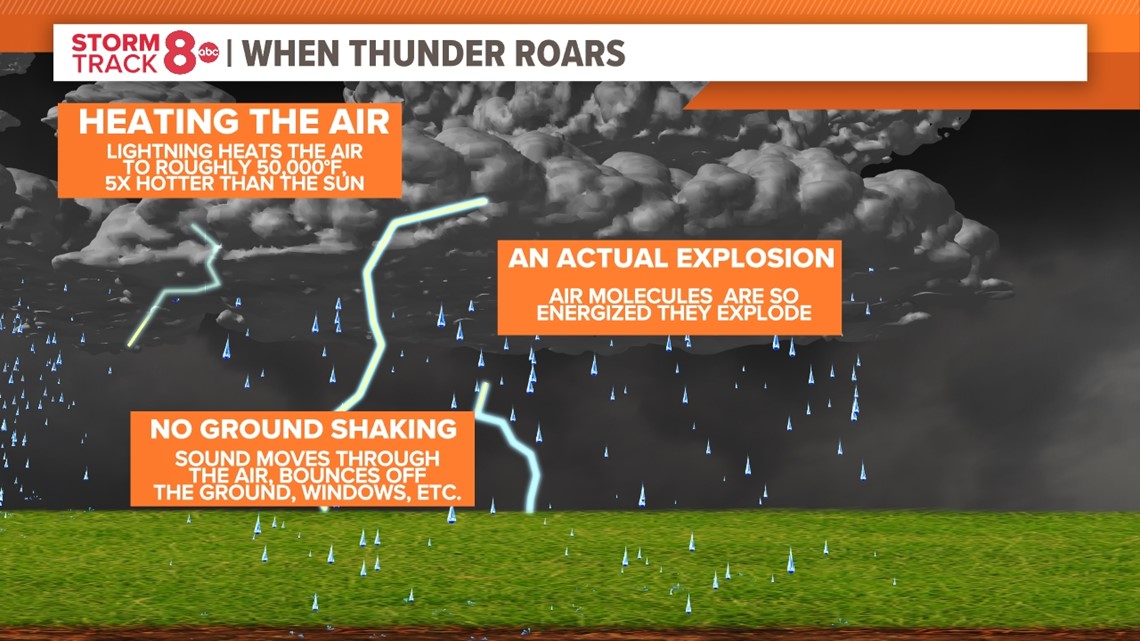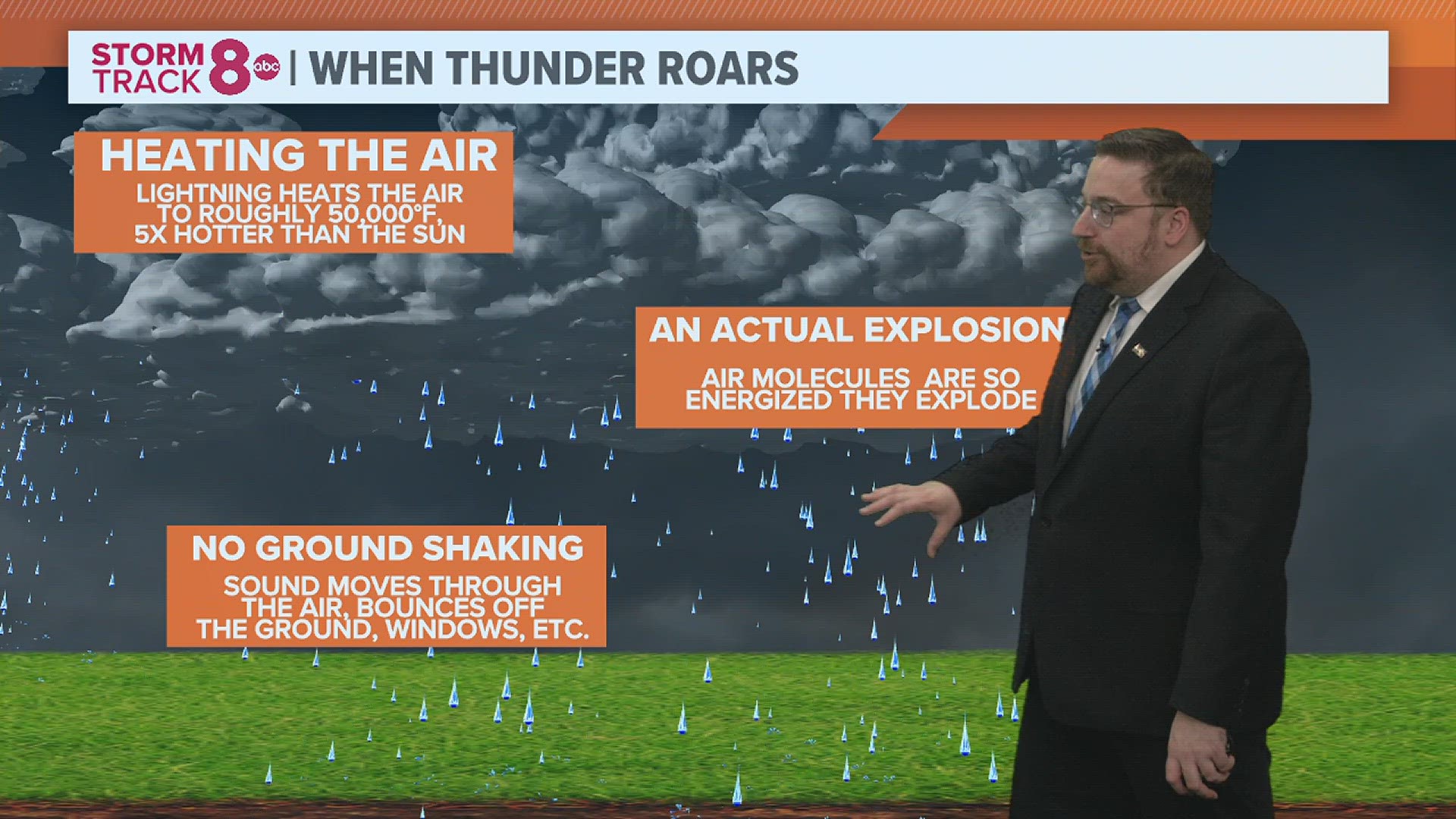MOLINE, Ill — Our first shot at some early springtime thunderstorms arrives on Thursday. No better time than now to talk about that very topic as Abigail from Davenport, Iowa, asks "Do thunderstorms shake the earth?" Let's dig in!
What causes thunder?
Thunder is created when air molecules rapidly expand, in this case from lightning. Did you know? A single lightning bolt heats the surrounding air to roughly 50,000 degrees Fahrenheit. That's five times hotter than the surface of the sun! This all happens so quickly that the air molecules around that lightning bolt essentially explode as they go from a state of very low energy to a state of extreme energy. That rapid change leads to an expansion of air molecules that creates a sonic-boom type of shock wave, which then bounces off of the ground and surrounding buildings, trees, etc.


All of that energy doesn't just stop when it hits something. It transfers to those objects causing them to vibrate or lightly shake. That's why your windows, china cabinets and maybe even yourself sound a little shaky as deep thunder roars.
Do earthquake detectors detect thunder?
The ground is a different case in terms of shaking. We usually associate that with earthquakes, which are measured using a seismograph. When roaring thunder bounces off the ground, it doesn't actually cause any physical shaking per see.
Our sister station KSDK-TV in St. Louis asked Dr. Robert Herrmann, a professor of geophysics at Saint Louis University, if thunder could be detected by these instruments.
The instruments these days are sensitive enough to pick up other things.
"So trains going down the railroad track by an instrument, the automobile traffic, explosions," Dr. Herrmann says.
But thunder that's another story.
"Typically we don't see thunder and lightning storms because that's sound going through the air and it doesn't really cause the ground to move much," Dr. Herrmann points out.
So, there you have it. Not enough to shake the ground, but certainly enough to shake things up on the wall of your living space!
Loudness of thunder
Different setups with the temperature of the atmosphere can enhance and even intensify the sound of thunder. When a large spread of temperatures is present and an inversion (layer of warm air) is in place, soundwaves from thunder get trapped and dissipate much more slowly, allowing them to travel further.
Have a question that you would like me to answer for an upcoming Ask Andrew segment? Submit it, here!

